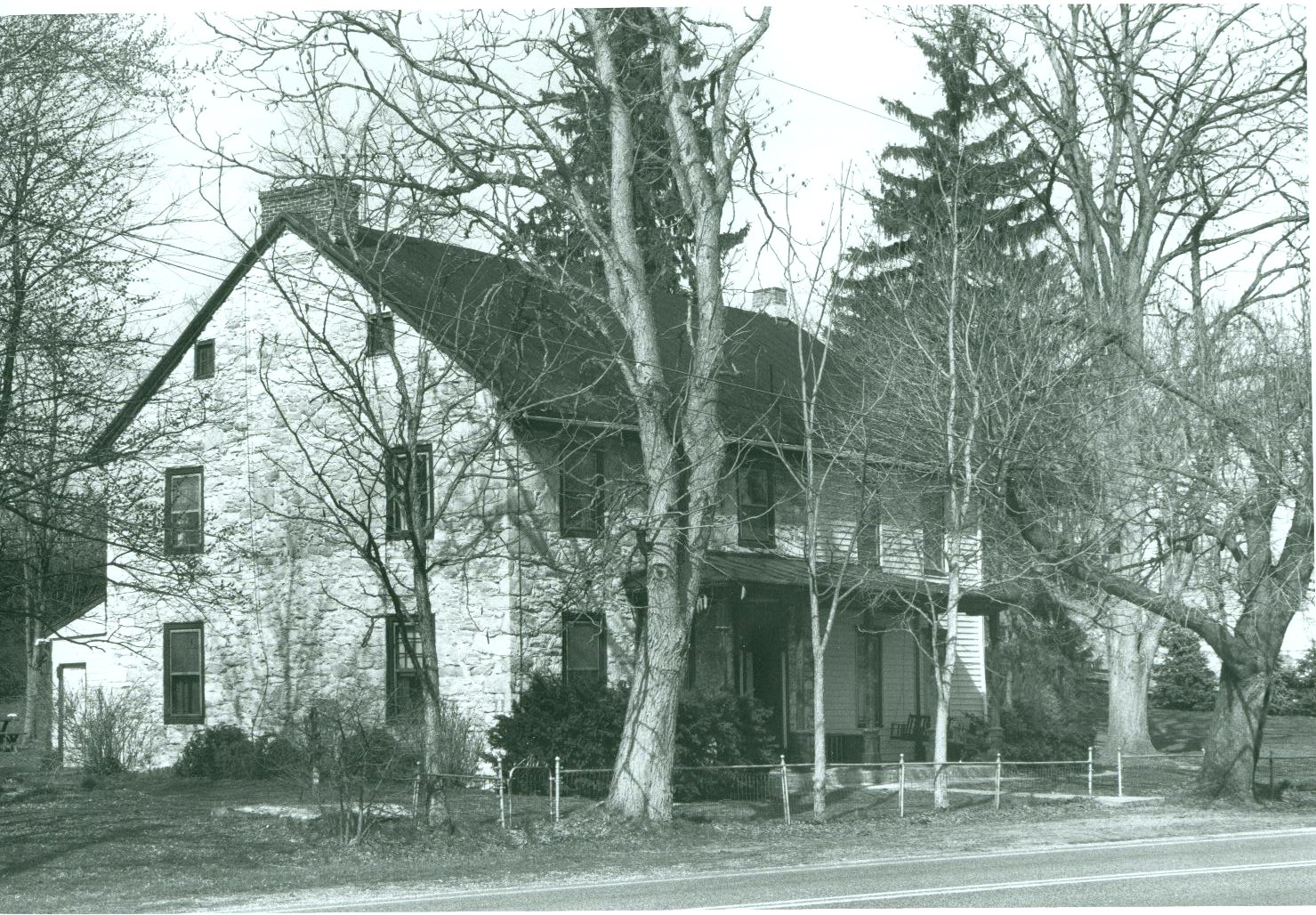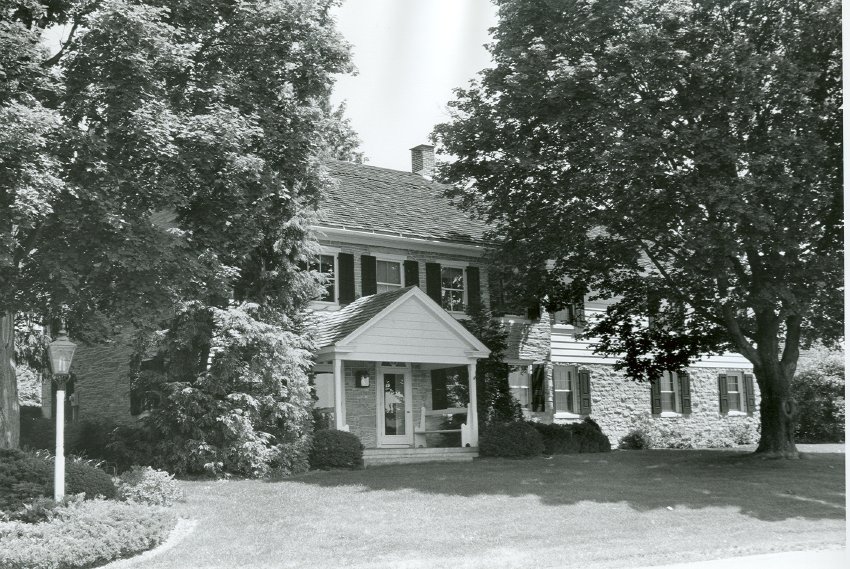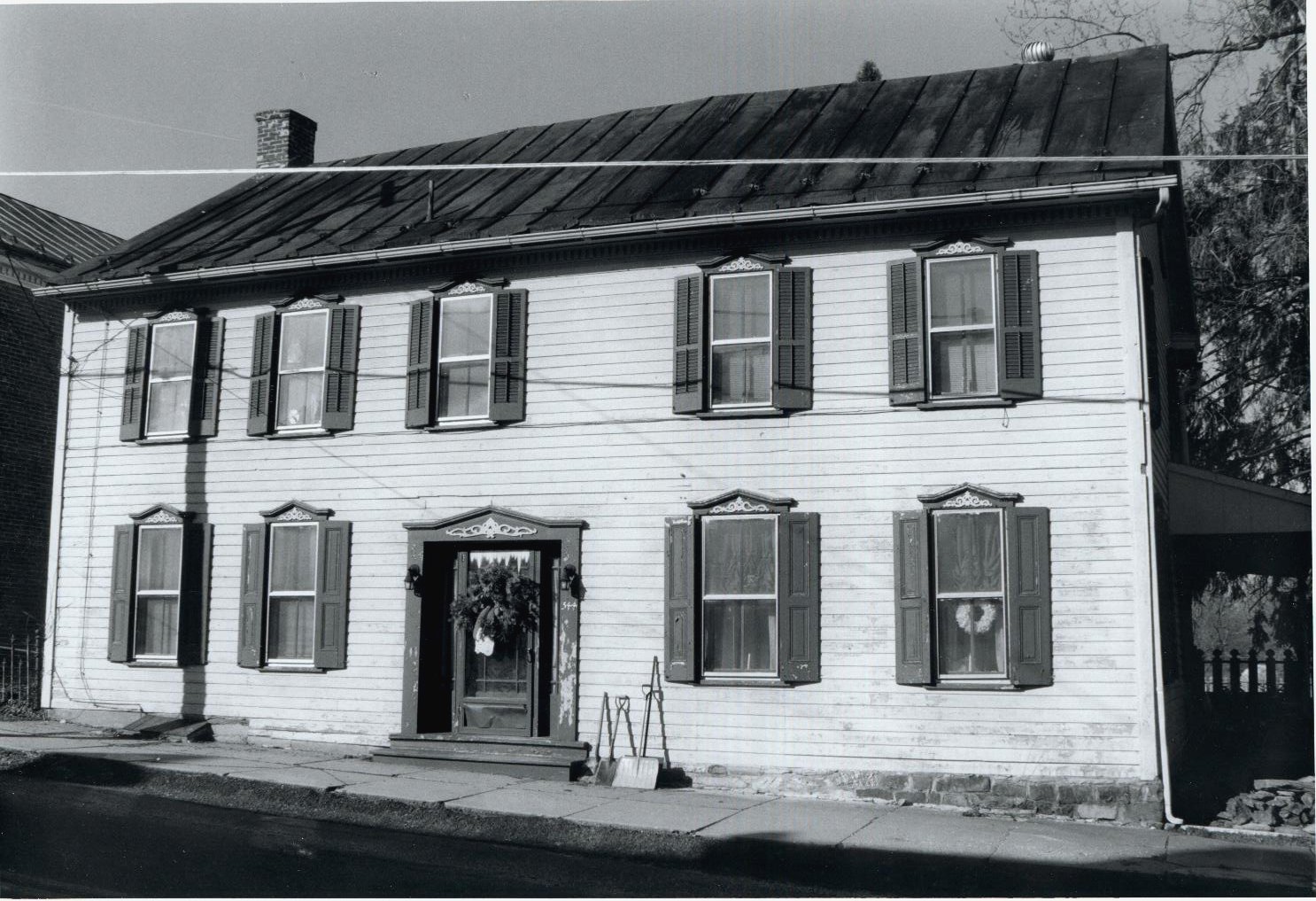Churchtown, a village in Monroe Township (originally in Allen Township) is located 6 miles from Carlisle, about 2 ½ miles from Boiling Springs, and 5 ½ miles from Mechanicsburg. The center of the village is crossed by Old Stone House Road and Rt. 174. These roads cross Lisburn Road and Trindle Road to the north of Churchtown, and York Road (Rt. 74) to the south of the village.
The village grew around the church built by the Lutheran and Reformed congregations (German Lutheran and Calvin Reformed Church) circa 1790. The adjoining cemetery lot on the corner of the village square was deeded to the church in 1795 by members Jacob Wise and his wife Anna.1
In 1822, when members of the church learned that two people proposed to open taverns nearly adjoining the church, and concerned for the morals of some of their members, they petitioned the court to deny them a license. They reminded the court that there was “already four licensed taverns on the public roads near the church and only situated from one to two miles from it…and that any increase of taverns in said place would be attended with very serious injury to the morals of the place.” Signed: John Wonderley, John Kenower, Sr., and Jr., Mathias Young, George Beltzhoover, Joseph Boughter, Michael Morret, Adam Ernst, Jacob Wise, Jr., and Peter Ritner.2
One of the four taverns on the public roads within one to two miles from the church was the “Sign of the Unicorn” located two miles from the church near the corner of Trindle and Old Stone House roads.3 Another was, Meixell’s tavern, located on the northeast corner of Rte. 174 and the Lisburn Road, just one mile from the church.4 The third tavern was likely the “Sign of the Eagle” kept by David Worley on the York Road (Rt. 74) a mile-and-a-half from Churchtown.5
One of the tavern licenses that the church was trying to prevent was Abraham Paul’s. He applied to the January 1822 Session of Court asking for a license to keep a tavern in Churchtown, and although his petition contained the names of more than a dozen men who testified that a tavern was needed there, and to Abraham Paul’s good moral character, the court rejected his petition.6
He applied for a license again in April 1822, this time with the recommendations of several dozen men, as well as the following statement with the reasons why he should be granted a license.
“Abraham Paul lives in Churchtown on the road leading from Middlesex to York. There is no tavern in that town, and the road is very much travelled. No tavern in the neighborhood on that road, from the junction of the Harrisburg Road till Moore’s tavern upwards of 16 miles. The Township of Allen was divided by the Assembly by an Act passed on Tuesday last, and Churchtown is the only town in the township. The town meetings must be held there. There is a store in the town kept by Samuel Hyer and a blacksmith shop, but no tavern. Mr. Paul is a weaver by trade, but in consequence of his health is not able to pursue it. There is a church in the place, and no house of entertainment for man or horse.”
Abraham Paul was granted a license.7 He kept a tavern in Churchtown from 1822-1836. When he applied for a license in 1836, it was granted despite the following remonstrances against him. “The undersigned, understanding that Abraham Paul will make application to your honors for license to keep a public house in Churchtown, deem it a duty they owe as well to your honors as to the community, to make known to you his habits and unfitness for keeping a public house. He is exceedingly intemperate and has been for a long time, so much so, that he is not infrequently dragged out of the bar room intoxicated. His house instead of being an accommodation is a nuisance to the public.” Signed: Thomas Williamson, John Osborn, Joseph Rider, John Morret, and John Kleinpeter. 8
Abraham Paul died in 1837, and David Martin kept the tavern for a year. 9 Abraham Paul’s widow Mary kept the tavern from 1838-1840 and John Paul from 1841-1849.
The old log church that housed the congregations that had asked the court not to grant a license to Abraham Paul in 1822 was torn down, and in 1849 a brick church was built. “In 1853 the two congregations (Lutheran and German Reformed) became one and changed the name of the church from Christ’s Church to Mt. Zion Church of Churchtown.” After the Reformed congregation disbanded, the Lutherans renamed the church Mt. Zion Lutheran Church. 10 It is still an active church, and Abraham Paul’s tavern house, with later additions, still stands at 344 Old Stone House Road.11



